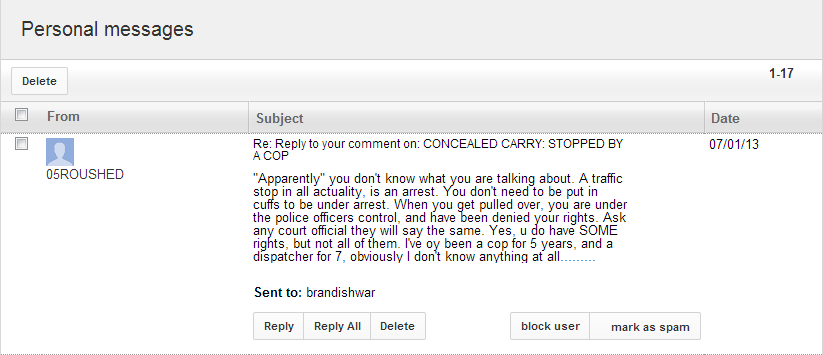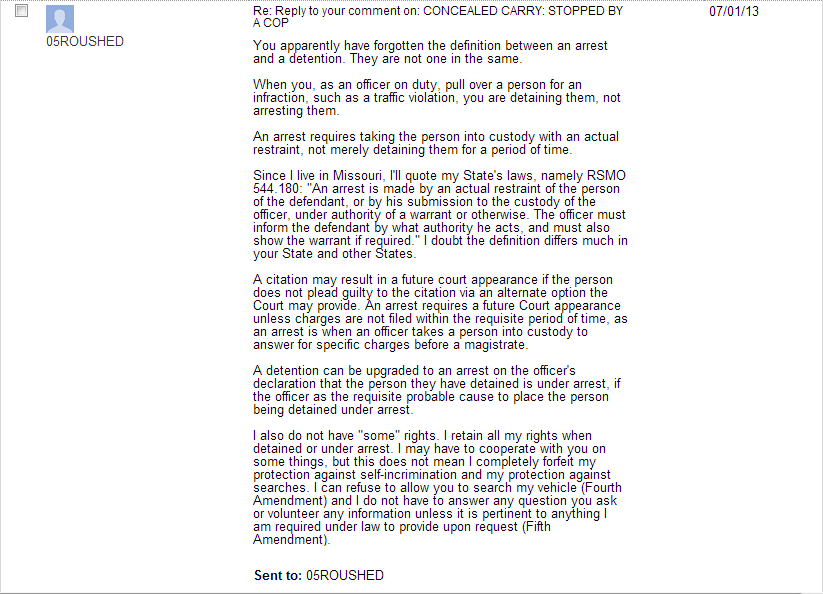Securing your home is about one thing: never leave a potential point of entry without any kind of hindrance to an intruder. It is impossible to make your home 100% secure, meaning someone with enough determination will find a way to break in and cause some mayhem, but that doesn’t mean you can’t get very close to that point. With enough of a hindrance, most people will give up or not even try in the first place.
At the same time, properly securing your home requires the proper mindset. The criminal mindset.
In light of this, a common notion has come up. I’ve encountered it in my profession as a software engineer. It can be summarized as this: criminals make the best security analysts. In casinos it is often stated as “to catch a cheat, hire one”. With securing your home, thankfully you don’t need to go as far as consulting a reformed serial burglar to help you locate the weak points.
Instead you can consult any seasoned law enforcement officer who has responded to numerous cases of burglary and home invasion. They’ve seen how criminals have broken into homes. They’ve seen how criminals commit crimes. They know the criminal mindset quite well. They know the realities of crime and violence, since they’re the once who pick up the pieces every day.
More importantly, they also have an idea of things that do not work.
Yet we leave the most vulnerable members of our society wide open and completely unsecured every weekday of the academic year. We saw this with Columbine in 1999. We saw this with Sandy Hook in 2012. There is nothing different about either situation: individuals hell-bent on creating a massive amount of carnage walked unhindered into a public school and opened fire. They met no resistance of any kind.
In response to Sandy Hook, there were massive calls, still ringing out even today, to “do something”. Yet is anyone looking at the Sandy Hook situation and analyzing it? No. Well not anyone with any political power, at least. Are they talking to law enforcement officers to determine how best to prevent the next tragedy? More like they’re just outright ignoring them.
Instead they were all too busy blaming the NRA and all gun owners for this situation. “If no one owned guns, this wouldn’t have happened!” they were too busy screaming.
Now arguably one thing that would easily stop school shootings from almost ever happening again is by turning all of the public schools into little prisons. In many ways they’re already like that, but I’m talking full security prisons with guard towers manned with guards with rifles, multiple layers of fencing, and the like. But any person who would seriously advocate for such is someone who definitely should not be taken seriously on anything.
After all prisons are more designed to keep people from getting out than getting in.
Schools, on the other hand, need to take the opposite approach. And on this, you can consult law enforcement to look around a school and identify its weak points of entry. After all a person determined on shooting up a school may not always just walk in the front door.
So when it comes to preventing school shootings, why is no one consulting law enforcement? Because most law enforcement officers are not telling lawmakers what the lawmakers want to hear. Indeed a survey by the site PoliceOne which included over 15,000 current and former or retired law enforcement officers, provided some interesting results:
- 71% of responders say the “assault weapons” ban would not reduce violent crime
- 95.7% of responders say magazine capacity limits would not reduce violent crime
- 79.7% of responders say that banning private, non-dealer transfers (closing the so-called “gun show loophole”) would not reduce violent crime
- 58.8% of responders say that increasing punishments for gun trafficking and “straw purchases” would reduce gun crime
- 44.8% of responders felt that requiring mental health background checks for gun sales would not reduce instances of mass shootings, while 23.9% were unsure
- 70% of responders do not support a national gun registration database
- 91.4% of responders want stiff, mandatory sentences for gun crimes
- 81.5% of responders believe that gun buyback and surrender programs are not effective in reducing gun violence
- 91.3% of responders support civilian concealed carry
- 54.7% of responders rated 5 and 21.7% of responders rated 4 on a scale of 1 to 5 for how important they feel concealed carry is in reducing overall crime
- 80% of responders feel that, in tragedies like Newtown and Aurora, had an armed citizen responded, there would have been fewer casualties and/or fatalities
- 76.6% of responders support arming teachers and/or school administrators with annual qualifications
- Only 4.4% of responders feel the availability/prevalence of guns in the US is the largest cause of gun violence
Remember, this is a survey of law enforcement officers, and they overwhelmingly disagree with the policies being proposed. When the law enforcers are saying the lawmakers are creating bad laws, you’d think the lawmakers would listen to them. But no, the lawmakers think they know what’s best, and if what the law enforcement officers are saying differs from what they want, then law enforcement must not know their stuff right?
And those surveyed overwhelmingly want current laws enforced, with gun crimes carrying stiffer penalties. They don’t feel the new policies will have any effect on crime, but they feel that having more actively armed citizens carrying concealed will reduce crime, and that arming teachers is also the direction to go to prevent mass shootings in schools. These are people who understand crime, know how it plays out in real life, and know the realities of violence in the real world.
Most people don’t have a clue about violence. Instead they have a romanticized view of crime and violence fed to us through television and other forms of entertainment. They are blind to reality, because they don’t want to think about reality. Sam Harris has penned several articles on violence (here, here and here). In his first article, called “The Truth about Violence”, he writes:
In my experience, most people do not want to think about the reality of human violence. I have friends who sleep with their front doors unlocked and who would never consider receiving instruction in self-defense. For them, gun ownership seems like an ugly and uncivilized flirtation with paranoia. Happily, most of these people will never encounter violence in any form. And good luck will make their unconcern seem perfectly justified.
In his “FAQ on Violence” article, he writes:
Many people simply do not want to think about this topic in any detail. I concede that, given the relative safety in which most of us live, this can be a reasonable attitude to adopt. Most people will do just fine walking the streets of London, Paris, or even New York, oblivious to the possibility that they could be physically attacked. Happily, the odds of avoiding violence are in our favor.
And that is the main reason why most people are so clueless about how violence actually plays out. The rate of violent crime in the United States has been steadily declining for the last 20 years, meaning the overall chance of a person becoming a victim of violent crime becomes is also declining every year. But overall chance is not individual chance, and many variables go into determining the individual chance you will be a crime victim.
Yet when it comes to gun crime and school shootings, suddenly the clueless portray themselves as experts. And they ignore the actual experts because they think they have the solution to the problem. Sorry, but that’s not how it works.
Law enforcement is already telling us what they feel will and will not work. And given that they are the ones how have to deal with the violent crime on a daily basis, it’s time we listen to them.





You must be logged in to post a comment.